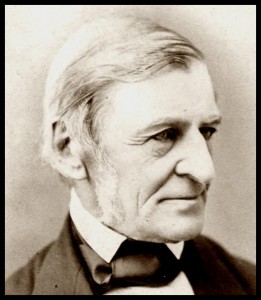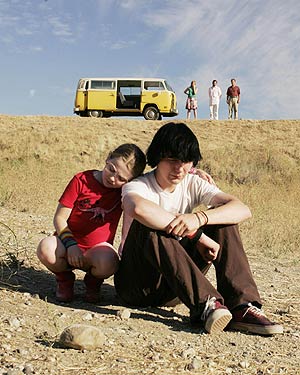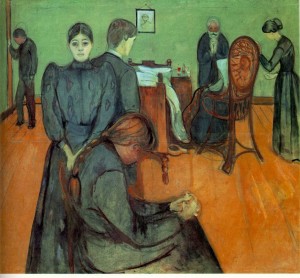Wed 15 Apr 2009
Ralph Waldo Emerson – Part 1 – Excerpts From Self Reliance
Posted by A.A. under Made me think, spirituality
[11] Comments
To believe your own thought… that is genius.
For Ralph Waldo Emerson, beauty, genius, and wisdom are your native state, held captive only by the ramparts of conventionality, insecurity and the insincerity that pour forth as you seek the favorable opinions of others at the expense of the true expression of your rightful self.
Like many great men before him, Emerson too earned a badge of condemnation and was called a “poisoner of young minds”. He was even banned from Harvard for 30 years following an address he gave to the graduating class of Harvard Divinity School in 1838. But, Emerson exemplified the bravery of thought that he hoped you might find within yourself. His wisdom changed our world through men like Mahatma Gandhi and Martin Luther King, Jr, both inspired partly by Emerson’s transcendentalism movement.
I find it best to take Emerson in doses. I have called this “Part 1” so that from time to time I might be able to add to this. In the excerpts below I’ve added italics to emphasize important points, the emphasis is not original to the writing.
Emerson’s “Introduction”:
Our age is retrospective. It builds the sepulchers of the fathers. It writes biographies, histories, and criticism. The foregoing generations beheld God and nature face to face; we, through their eyes. Why should not we also enjoy an original relation to the universe? Why should not we have a poetry and philosophy of insight and not of tradition, and a religion by revelation to us, and not the history of theirs? Embosomed for a season in nature, whose floods of life stream around and through us, and invite us by the powers they supply, to action proportioned to nature, why should we grope among the dry bones of the past, or put the living generation into masquerade out of its faded wardrobe? The sun shines to-day also…

 On September 18th, 2006, my wife and I saw Little Miss Sunshine. It really absorbed me. I wrote my wife an email from work the next day once I’d had a good night to let my thoughts “percolate”, as you might say. That email has since gotten forwarded around a bit. I’ve been told by several people that they’d been inspired enough to save it. That made me think, “Hey, easy blog post, I’ll just copy and paste that old email!” It may seem odd or untimely to post a review of a 2 year old movie, but ultimately, it is not really about the movie anyway. As you will see it is about us; about my life and your life. It is about something that I believe that we all came here to experience as part of the full palate of life’s blessings. And that is suffering, and our struggle to understand its meaning in our lives. Well, the topic is close to my heart and I hope it touches you as well. As Friedrich Nietzsche might say, this post is dedicated to “the few”…
On September 18th, 2006, my wife and I saw Little Miss Sunshine. It really absorbed me. I wrote my wife an email from work the next day once I’d had a good night to let my thoughts “percolate”, as you might say. That email has since gotten forwarded around a bit. I’ve been told by several people that they’d been inspired enough to save it. That made me think, “Hey, easy blog post, I’ll just copy and paste that old email!” It may seem odd or untimely to post a review of a 2 year old movie, but ultimately, it is not really about the movie anyway. As you will see it is about us; about my life and your life. It is about something that I believe that we all came here to experience as part of the full palate of life’s blessings. And that is suffering, and our struggle to understand its meaning in our lives. Well, the topic is close to my heart and I hope it touches you as well. As Friedrich Nietzsche might say, this post is dedicated to “the few”… Religious cancer sufferers are more likely to employ extreme measures to postpone an inevitable death than are the non-religious. This is the finding of a study published in the Journal of the American Medical Association this month. Journalistic reporting on this study has generally focused attention on the seemingly paradoxical finding that the most religious people appear to avoid “meeting their maker”. So, is the finding contradictory to what one would expect from the faithful? Let’s come back to that.
Religious cancer sufferers are more likely to employ extreme measures to postpone an inevitable death than are the non-religious. This is the finding of a study published in the Journal of the American Medical Association this month. Journalistic reporting on this study has generally focused attention on the seemingly paradoxical finding that the most religious people appear to avoid “meeting their maker”. So, is the finding contradictory to what one would expect from the faithful? Let’s come back to that.